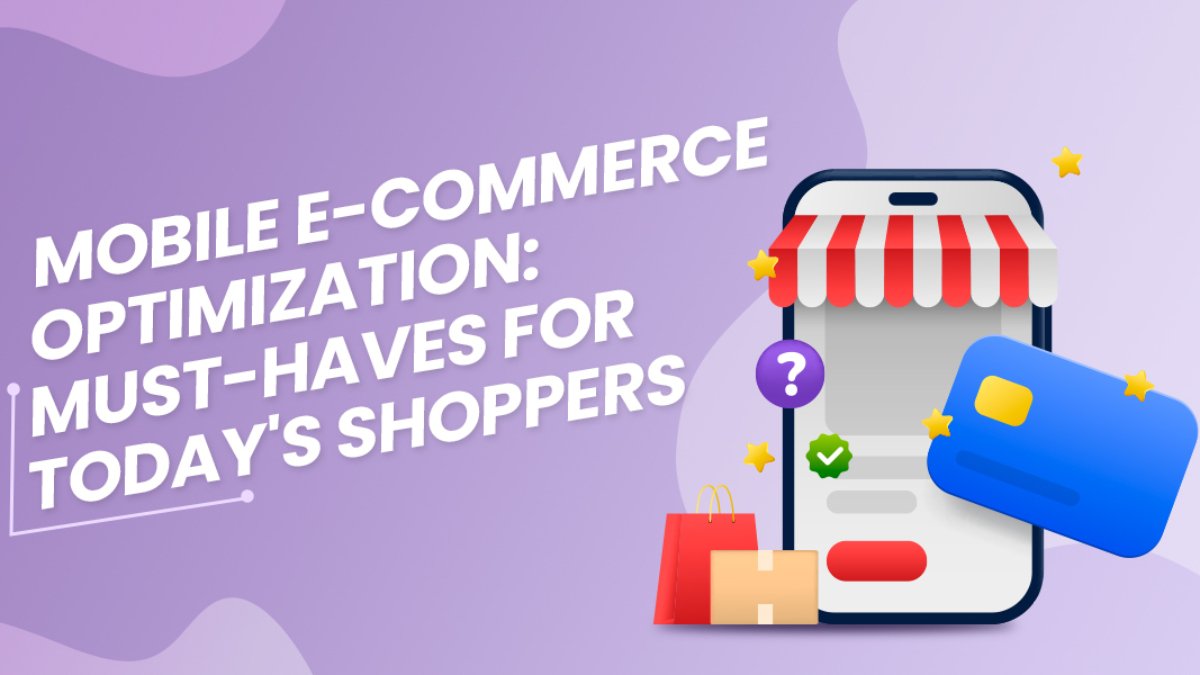In today’s fast-paced digital landscape, mobile commerce, or m-commerce, has become an essential component of business strategies. With the increasing reliance on smartphones, consumers are more inclined to shop through their mobile devices. To stay competitive, businesses must optimise their mobile commerce platforms to provide a seamless and engaging shopping experience. This blog will explore the key elements necessary for optimising mobile commerce, ensuring that your business meets the expectations of today’s savvy shoppers.
Understanding Mobile Commerce
Mobile commerce refers to the buying and selling of goods and services through mobile devices such as smartphones and tablets. It encompasses various activities, including mobile banking, ticketing, and, most importantly, online shopping. As consumers increasingly rely on their mobile devices for everyday tasks, the importance of a well-optimised mobile commerce platform cannot be overstated.
The Importance of Mobile Optimization
The shift towards mobile shopping is not just a trend but a significant transformation in consumer behaviour. A well-optimised mobile commerce platform can lead to increased sales, higher customer satisfaction, and a stronger competitive edge. Here are some statistics that highlight the importance of mobile optimization:
Increased Mobile Traffic: Over 50% of global web traffic comes from mobile devices.
Higher Conversion Rates: Mobile-optimised websites have a higher conversion rate compared to non-optimized sites.
Customer Expectations: 57% of users will not recommend a business with a poorly designed mobile site.
Given these statistics, it is clear that businesses need to prioritise mobile optimization to cater to the needs and preferences of modern shoppers.
Key Elements for Mobile Commerce Optimization
- Responsive Design
A responsive design ensures that your website adapts seamlessly to different screen sizes and orientations. This is crucial for providing a consistent and user-friendly experience across various devices. Responsive design eliminates the need for separate mobile and desktop versions of your site, streamlining your content management process.
- Fast Loading Times
Speed is a critical factor in mobile commerce. Slow loading times can lead to high bounce rates and lost sales. To optimise loading times:
Compress Images: Use image compression tools to reduce file sizes without compromising quality.
Minimise Code: Eliminate unnecessary code and use efficient coding practices to speed up your site.
Leverage Caching: Implement browser caching to store certain elements of your website, reducing load times for returning visitors.
- Simplified Navigation
Mobile users expect intuitive and straightforward navigation. A cluttered or complicated interface can frustrate users and drive them away. Consider the following tips for simplified navigation:
Clear Menus: Use clear and concise menu labels.
Search Functionality: Include a prominent search bar to help users find what they need quickly.
Easy Access to Key Pages: Ensure that important pages, such as product categories and the shopping cart, are easily accessible.
- Mobile-Friendly Checkout
The checkout process is a critical stage in the customer journey. A smooth and hassle-free checkout experience can significantly reduce cart abandonment rates. Here are some best practices:
Guest Checkout: Allow customers to check out without creating an account.
Auto-Fill Options: Utilise auto-fill technology to simplify form completion.
Multiple Payment Methods: Offer a variety of payment options, including digital wallets and mobile payment solutions.
- High-Quality Images and Videos
Visual content plays a vital role in mobile commerce. High-quality images and videos can enhance the shopping experience by providing a closer look at products. Ensure that your visual content is optimised for mobile devices by using the appropriate resolutions and formats.
- Personalization
Personalization can greatly enhance the mobile shopping experience by tailoring content to individual preferences. This can include personalised product recommendations, targeted promotions, and customised user experiences based on browsing history and behaviour.
- Secure and Trustworthy
Security is paramount in mobile commerce. Customers need to feel confident that their personal and payment information is safe. Implement robust security measures, such as SSL certificates and secure payment gateways, to protect customer data.
- Customer Support
Providing excellent customer support can set your business apart from competitors. Offer multiple channels for customer support, including live chat, email, and phone support. Additionally, consider integrating AI-powered chatbots to provide instant assistance and answer common queries.
- Analytics and Monitoring
Regularly monitoring and analysing your mobile commerce platform’s performance can help identify areas for improvement. Use analytics tools to track key metrics, such as page load times, conversion rates, and user behaviour. This data can provide valuable insights into how customers interact with your site and highlight potential optimization opportunities.
- Utilising the Best Free Website Builder for Small Business UK
For small businesses in the UK looking to establish or improve their mobile commerce presence, choosing the right website builder is crucial. The best free website builder for small business UK offers a range of features designed to optimise mobile performance. Look for website builders that provide responsive templates, built-in SEO tools, and easy-to-use interfaces to help you create a mobile-optimised site without the need for extensive technical knowledge.
Conclusion
Optimising mobile commerce is no longer optional—it’s a necessity. By implementing the key elements discussed in this blog, you can create a mobile shopping experience that meets the high expectations of today’s consumers. From responsive design and fast loading times to secure transactions and personalised experiences, each aspect plays a vital role in enhancing customer satisfaction and driving sales.
As you embark on your mobile commerce optimization journey, remember to leverage the best free website builder for small business UK. This tool can help you build a robust and user-friendly mobile commerce platform, ensuring that your business thrives in the competitive digital marketplace.
By prioritising mobile optimization, you can provide your customers with a seamless and enjoyable shopping experience, ultimately leading to increased loyalty and higher conversion rates. Stay ahead of the curve and make mobile commerce a cornerstone of your business strategy.

Leave a Comment